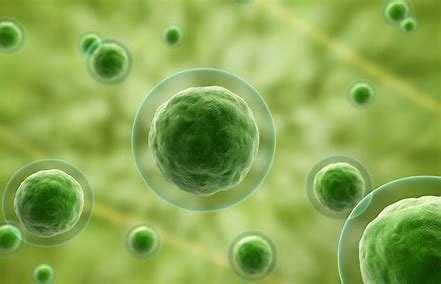Tessara Therapeutics, Psylo, and University of Sydney Secure $6.2M to Advance Neuroplastogen Research for Methamphetamine Addiction
29 October 2024 | Tuesday | News

Image Source : Public Domain
Tessara Therapeutics, Psylo, and the University of Sydney are pleased to announce their receipt of a $3 million Cooperative Research Centres Projects (CRC-P) grant. Matching funds committed by the partners increases the total project investment to $6.2 million. The collaboration will focus on the development of neuroplastogens for the treatment of substance use disorders, with an emphasis on methamphetamine addiction.
Methamphetamine addiction is a serious public health issue with limited effective treatments, highlighting the urgent need for new therapeutic approaches. This collaboration will leverage Tessara's cutting-edge RealBrain® microtissue technology, Psylo's pioneering neuroplastogens, and the University of Sydney's neuroscience expertise to address this critical challenge.
Neuroplastogens are a novel class of compounds that promote neuroplasticity—the brain's capacity to adapt, reorganize, and form new neural connections. Unlike traditional treatments that mainly address symptoms, neuroplastogens aim to directly restore brain function by stimulating the growth and remodeling of neural circuits. This innovative approach has the potential to yield faster, more effective treatments for addiction and other mental health conditions.
"This grant provides an exciting opportunity to combine the expertise of Tessara, Psylo, and the University of Sydney in developing transformative solutions for an urgent medical need," said Dr. Christos Papadimitriou, CEO and Managing Director of Tessara Therapeutics. "Tessara's high-throughput, human cell-based microtissues model brain function more accurately, driving more efficient discovery of drugs to treat addiction."
Joshua Ismin, CEO and co-founder of Psylo, added, "At Psylo, our mission is to address critical gaps in mental health care with next-generation neuroplastogens. This collaboration not only accelerates our drug development but also brings us closer to providing meaningful solutions for addiction-related disorders."
The project aims to significantly reduce the time and cost associated with neuroplastogen discovery, creating faster and more precise pathways for treating substance use disorders.
"This collaboration represents a major step forward in developing research models that better reflect human biology, enabling more precise testing of new therapies," said Dr. Nick Everett, Research Fellow at the Brain and Mind Centre and University of Sydney's School of Psychology, and expert in behavioral neuroscience. "We believe this project could redefine how addiction therapeutics are developed."
Scheduled to run from January 2025 to December 2027, the initiative will not only deliver promising neuroplastogen candidates but also enhance capabilities in neuroplasticity research, improve access to high-efficiency preclinical models, and promote sustainable research practices in drug discovery.
This project received grant funding from the Australian Government under the Cooperative Research Centres Projects Round 16.
Most Read
- How Does GLP-1 Work?
- Innovations In Magnetic Resonance Imaging Introduced By United Imaging
- Management of Relapsed/Refractory Multiple Myeloma
- 2025 Drug Approvals, Decoded: What Every Biopharma Leader Needs to Know
- BioPharma Manufacturing Resilience: Lessons From Capacity Expansion and Supply Chain Resets from 2025
- APAC Biopharma Review 2025: Innovation, Investment, and Influence on the Global Stage
- Top 25 Biotech Innovations Redefining Health And Planet In 2025
- The New AI Gold Rush: Western Pharma’s Billion-Dollar Bet on Chinese Biotech
- Single-Use Systems Are Rewiring Biopharma Manufacturing
- The State of Biotech and Life Science Jobs in Asia Pacific – 2025
- Asia-Pacific Leads the Charge: Latest Global BioSupplier Technologies of 2025
- Invisible Threats, Visible Risks: How the Nitrosamine Crisis Reshaped Asia’s Pharmaceutical Quality Landscape
Bio Jobs
- Sanofi Turns The Page As Belén Garijo Steps In And Paul Hudson Steps Out
- Global Survey Reveals Nearly 40% of Employees Facing Fertility Challenges Consider Leaving Their Jobs
- BioMed X and AbbVie Begin Global Search for Bold Neuroscience Talent To Decode the Biology of Anhedonia
- Thermo Fisher Expands Bengaluru R&D Centre to Advance Antibody Innovation and Strengthen India’s Life Sciences Ecosystem
- Accord Plasma (Intas Group) Acquires Prothya Biosolutions to Expand Global Plasma Capabilities
- ACG Announces $200 Million Investment to Establish First U.S. Capsule Manufacturing Facility in Atlanta
- AstraZeneca Invests $4.5 Billion to Build Advanced Manufacturing Facility in Virginia, Expanding U.S. Medicine Production
News











